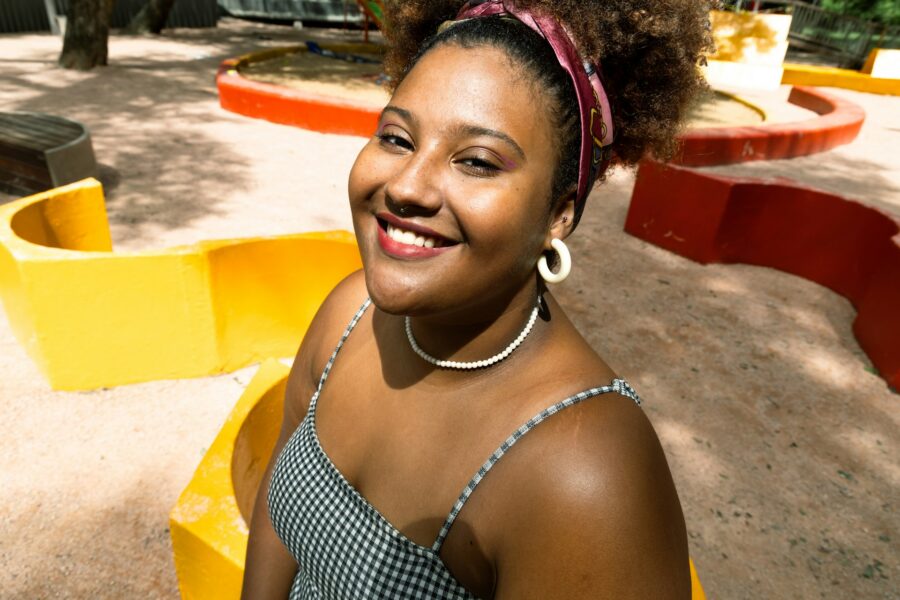Healing doesn’t happen overnight, unfortunately, and when it comes, it rarely announces itself dramatically.

Most of the time, you sort of realise that you’re experiencing more peace and healing through the small decisions, calmer thoughts, and unexpected emotional changes you experience. If you notice these signs, you’re probably well on your journey already. Don’t worry, you’ll get there.
1. You stop and think before you act (or react).

That tiny moment where you stop yourself from snapping, withdrawing, or saying something you’ll regret? That’s a big deal. Even if the feeling is still there, the fact that you can pause and notice it means your emotional reflexes are changing. You’re creating space between your feelings and your reactions, and that’s not something you used to be able to do.
That change might feel frustrating because you’re still getting triggered, but healing isn’t about never feeling things. It’s about responding differently when you do. That pause is where change begins. You might not realise it, but you’re slowly becoming more grounded and aware than you’ve ever been.
2. You don’t chase the same chaos.

Things that used to feel thrilling or intense might now feel exhausting. Maybe you’ve started avoiding the messy friendships, the toxic texts, or the old drama loops that once pulled you in. At first, this might feel like boredom, but really, it’s peace.
Healing often means realising you don’t need the emotional rollercoaster to feel alive. You’re learning to protect your energy, even if your brain occasionally misses the old buzz. That’s not regression—it’s your nervous system recalibrating to something healthier.
3. You’re less interested in proving your worth.

Where you once needed to explain, justify, or defend yourself constantly, you now find yourself thinking, “I don’t need to convince anyone.” That change in inner dialogue is huge. It means your self-worth is becoming internal, not performative. It doesn’t mean you’ve stopped caring altogether. It just means you’re learning that not everyone’s opinion deserves that much space in your mind. You’re starting to trust your own value, even if it’s still a bit shaky some days.
4. You recognise old patterns faster.

You might still find yourself slipping into familiar habits—people-pleasing, overthinking, shutting down—but now you spot them sooner. That awareness is a sign your brain is rewiring. It’s catching things it used to overlook completely. Even if the pattern still plays out, the fact that you’re noticing it is important. It’s the first step toward doing something different next time. Self-awareness isn’t always comfortable, but it’s proof that your perspective is evolving.
5. You allow yourself to rest.

If you’ve stopped seeing rest as lazy or unproductive, that’s major. Maybe you’re napping without guilt. Maybe you no longer feel the need to earn downtime by burning out first. This is nervous system repair in action. Rest becomes possible when your survival mode switches off. Even if it’s just occasional, the fact that you’re letting yourself be still is a sign that your mind is feeling safer. Healing makes space for recovery, not just survival.
6. You don’t crave constant validation.

Where you once needed reassurance or approval to feel okay, you might now feel more comfortable in your own decisions. Maybe you still ask for feedback sometimes, but it’s no longer a lifeline—it’s optional. That doesn’t mean you’ve become emotionally detached. It means you’re starting to trust your own instincts. You’re building a sense of inner steadiness that doesn’t collapse every time someone disagrees with you. That’s progress.
7. You forgive yourself quicker.

Messing up used to lead to endless shame spirals. Now, while you still feel disappointed or embarrassed, you’re more likely to say, “That wasn’t great—but I’m learning.” That change in tone is a sign of self-compassion. Healing doesn’t mean perfection. It means recognising you’re human, and being gentler with yourself in moments of imperfection. You’re allowed to mess up and still be a good person. That belief is starting to take root, and it’s powerful.
8. You’re less reactive to things that used to ruin your day.

Maybe the passive-aggressive comment still stings, or the unexpected change still throws you off—but it doesn’t hijack your entire mood anymore. You bounce back faster. Your emotions feel less like a tidal wave and more like a ripple. The aim here isn’t to become emotionally numb. It’s about emotional resilience. You’re learning how to feel things without drowning in them, and that makes life a lot less overwhelming than it used to be.
9. You create boundaries without as much fear.

Setting boundaries used to come with a knot in your stomach. The fear of conflict, rejection, or disappointing someone kept you stuck. But now, you might be saying “no” a little more easily, and it’s not ruining you. You’re realising that boundaries don’t make you cold or selfish—they make relationships healthier. And each time you speak up for yourself, it gets a bit easier. The guilt starts to fade. Your confidence begins to grow.
10. You don’t feel the need to explain your healing.

In the past, you may have tried to explain your triggers, justify your distance, or over-explain your growth. Now? You’re more comfortable just doing what you need to do, even if other people don’t get it. Healing often includes letting go of the need to be understood. You stop handing out maps to people who aren’t willing to meet you where you are. That calm sense of self-trust is one of the clearest signs you’re changing for the better.
11. You’re drawn to gentler environments.

Loud, chaotic, or high-pressure settings that once felt normal now feel overstimulating. You’re gravitating toward peace—calmer people, slower conversations, simpler spaces. It’s not that you’re becoming boring; you’re just no longer craving adrenaline-fuelled stress.
When healing happens, your nervous system naturally starts to seek safety instead of drama. You begin to protect your emotional space the same way you’d protect physical space. And you start finding joy in stillness you used to avoid.
12. You feel grief for the version of you who didn’t know better.

Sometimes healing brings sadness. Not because you’re broken, but because you realise how much pain you used to carry without even noticing. You look back and feel heartache for the younger version of yourself who was just trying to survive. That grief is sacred. It means you’ve grown. You can see your past with more compassion instead of shame. And when you can look at your old self with love instead of judgement—that’s healing, too.
13. You’ve stopped needing everything to be “healed.”

There comes a point where you stop waiting to feel completely fixed. You stop obsessing over timelines, milestones, or being “done.” Instead, you learn to live alongside your healing, trusting that it’ll unfold at its own pace.
This surrender isn’t the same as giving up. It’s choosing to show up for life, even with the mess. Even with the unknowns. Because healing isn’t a finish line—it’s a way of moving through the world with more honesty, more grace, and more care than you used to.


